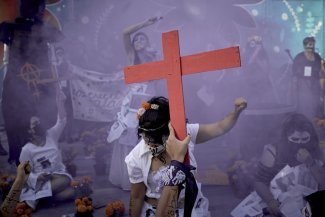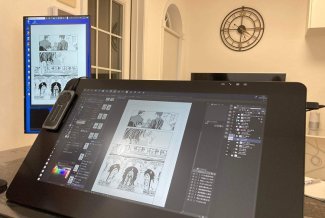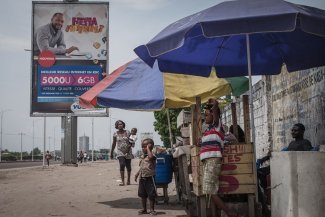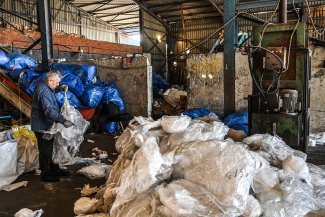
Hundreds of protestors marched on Delhi this week to demand justice for survivors of the single worst industrial disaster in history.
The protest took place on Monday, 3 December, the 28th anniversary of the Bhopal tragedy, where a highly toxic gas leak at a Union Carbide pesticide factory in the Indian state of Madhya Pradesh saw some 3,000 people die in the immediate aftermath and an estimated 15,000 more from the side-effects.
In total, more than 600,000 people are said to have been affected by the tragedy, and its impact can still be felt today.
Monday’s marchers, who comprised five organisations working with survivors of the disaster, said they wanted to “ensure justice and a life of dignity for the Bhopal survivors.”
The march to the prime minister’s office in New Delhi was motivated by the strong feeling that this has not yet been achieved.
Campaigners are particularly angry that Union Carbide India Limited (UCIL), and its American mother company the Dow Chemical Company, have not yet been truly brought to justice nor had the victims received adequate compensation.
Disaster
UCIL is a chemical company established in 1934, with a 51 per cent stake owned by Union Carbide Corporation (UCC, a subsidiary of Dow since 2001) and 49 per cent owned by a group of Indian investors including the Indian government. Union Carbide established its pesticide factory in Bhopal in 1969.
On the night of 2 and 3 December 1984, a gas leak at the plant exposed hundreds of thousands of people to methyl isocyanate, which causes chest pains, skin damage, fluid in the lungs, emphysema, bronchial pneumonia and death.
Subsequent investigations revealed that poor design and maintenance of the factory, as well sub-standard training and insufficient safety measures all contributed to the tragedy.
Although death toll estimates vary, everyone agrees the results of the gas leak were devastating.
Entire families were wiped out. Thousands of children were orphaned, and those adults and children who survived were left with debilitating injuries. To this day, men are still unwilling to marry women from this area because so many of them cannot conceive, and even if they do, their children are born with disabilities.
The damage continues because the clean-up operation still hasn’t been completed. The disused factory still contains carcinogenic chemicals which leak out and contaminate the local groundwater.
The most recent figures from the Indian Council of Medical Research reveals that, by 2009, at least 20,000 people had died from injuries caused by the gas leak.
Research also reveals that between 1984 and 1989, around 3,500 spontaneous abortions occured as a result of gas exposure.
On a warpath
For all this, Monday’s protesters want nothing less than justice.
28 years after the disaster and not a single person has been jailed in connection with the Bhopal gas leak, nor have any UCC and Dow representatives appeared in court for the pending criminal case.
Warren Anderson, the CEO of UCC at the time of the disaster, was charged with manslaughter by the Indian authorities but he fled India and has refused to return to the country since. The US government has also refused to extradite him.
The first judgment against Union Carbide employees was delivered in June 2010 when eight Indian workers for UCIL were convicted of ’death by negligence.’
They were sentenced to two years in prison each and fined 100,000 rupees ($2,125) each. But they were granted immediate bail immediately.
Protestors are not only calling for UCC and Dow to have their day in court but to make financial arrangements for compensating the actual number of deaths and injuries, which has been a major battle for activists.
The organisations working for Bhopal victims claim that the Madhya Pradesh state government told the Supreme Court that only around 5,000 people had lost lives whereas the real figure was three times that number. This extreme underestimate has affected the amount of compensation granted to victims, which worked out at about $494 per person.
“The company [UCC] had paid a compensation of US$470 million for those affected in the year 1989. The US$494 they received hardly covered their medical bills in the first months. Over 28 years of suffering it comes to 2.50 rupees or five cents per day,” states the International Campaign for Justice in Bhopal.
Activists also want UCC and Dow to set aside sufficient funds for the clean-up of contaminated soil and groundwater in and around the abandoned factory and to monitor the health of the affected population.
To date, no compensation has been sought or offered for the environmental devastation caused by the leak. Critics say that the compensation should be comparable to the US$7.8 billion BP are expected to pay-out to victims of the 2010 Gulf of Mexico oil spill.
But Dow Chemical has stated that the US$470 million compensation delivered by Union Carbide in 1989 was final. They have also refused to pay more or to clear toxic waste from the site in Bhopal.
Members of the International Campaign for Justice in Bhopal told reporters that 94 per cent of the people exposed to toxic gases had been paid only 25,000 rupees (approximately US$500) as compensation, as the government had wrongly categorised their injuries as temporary.
They pointed out that the curative petition (a writ petition filed in the Supreme Court under Article 32 of the constitution, where the petitioner can file a case after exhausting the right of appeal and review in a matter of grave importance) filed by the Indian government supposedly to remedy the wrongful settlement of 1989 itself downplayed the deaths and health damage caused by the disaster.
According to them, the government should be asking for 370 billion rupees (US$8.1 billion) instead of 60 billion rupees (US$1.2 billion), to ensure adequate compensation for all Bhopal victims.
The campaigners also want to ensure that Dow Chemical is not allowed to make any investments in this country directly or indirectly till it accepts Union Carbide’s liabilities in Bhopal.
The government should take strict action to see to it that the Bhopal Memorial Hospital has full facilities for treatment of all diseases known to be associated with exposure to Union Carbide’s poisons.
Besides, the government should initiate a comprehensive scientific assessment of the nature, depth and spread of groundwater.
In the absence of these measures, Bhopal survivors and their supports will continue their fight for justice.








